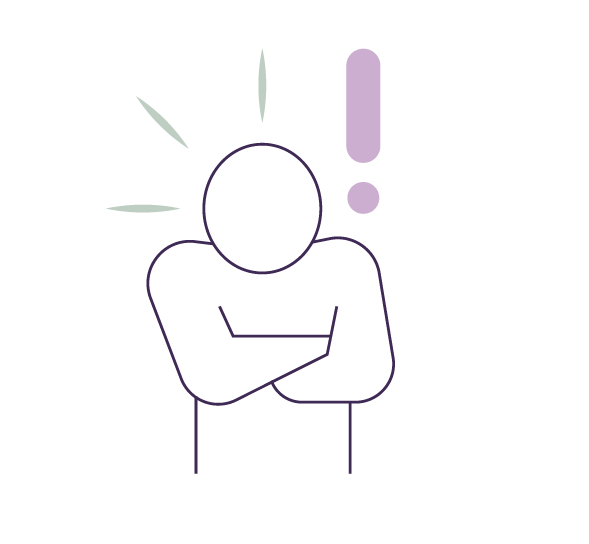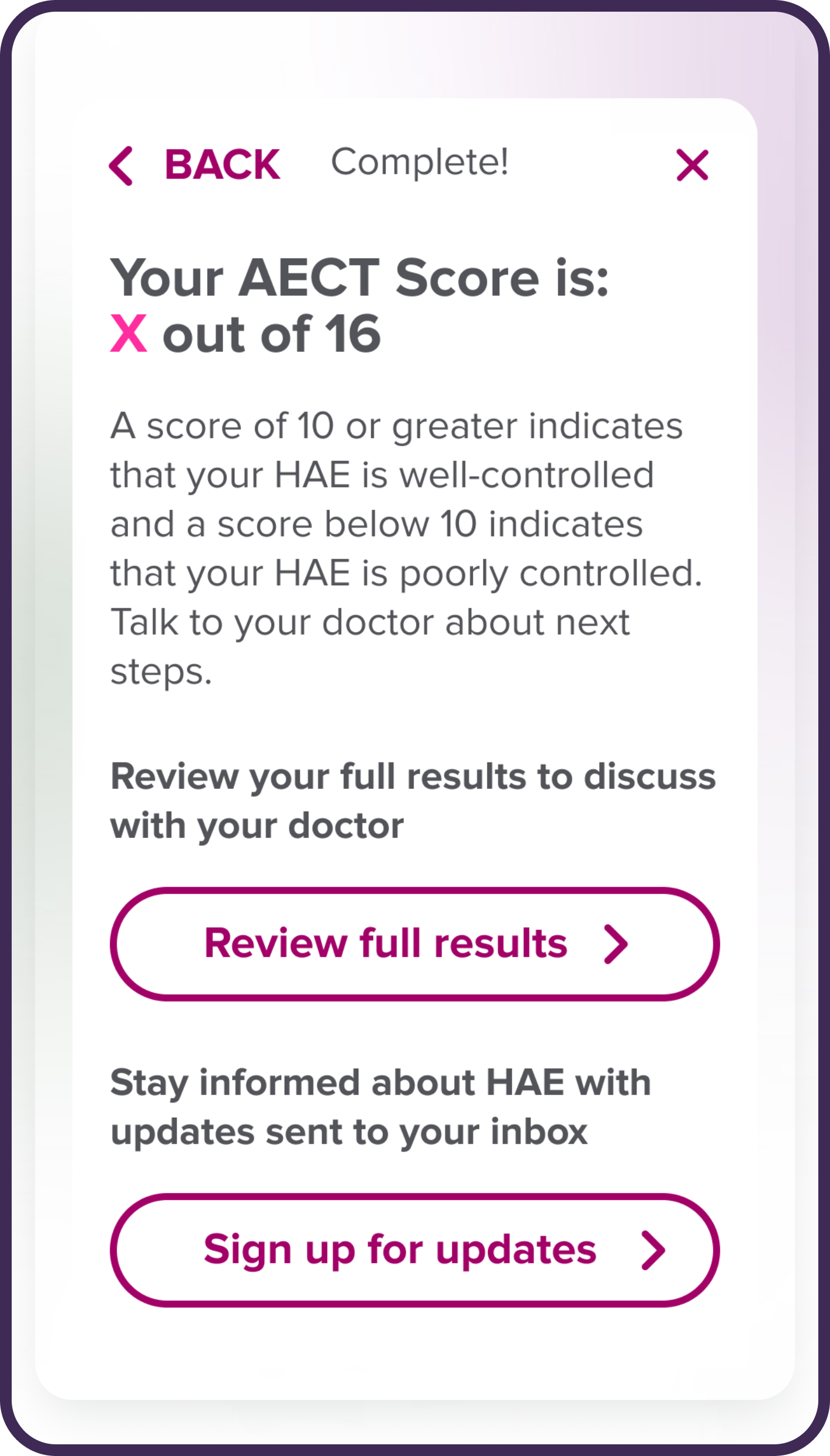Take a stand against trade-offs
Living with hereditary angioedema (HAE) often means living with mild attacks and regular accommodations. While current treatment options may have vastly improved life with HAE, many are still impacted by the disease. Many continue to experience attacks, even while on treatment, and nearly everyone faces an emotional or physical toll.
HAE takes a bigger toll than many realize

89% of people reported they frequently missed or avoided events due to their HAE.*

73% of people with HAE reported a negative impact on their mental health.*

60% of people reported that they wished their doctor better understood the daily impact HAE had on their lives.*
With HAE, it can feel like sacrifice isn't optional, it's inevitable. But it doesn't have to be. When you’ve lived through worse, you may accept less. However, tests like the Angioedema Control Test (AECT) can help reveal how your disease control is going.
*Online survey conducted by The Harris Poll of 150 US adults diagnosed with HAE by a health care provider, sponsored by Ionis Pharmaceuticals.

The power in knowing your number
Putting your HAE experience into words can be a challenge. That's where the Angioedema Control Test (AECT) comes in. In a clinical study, this simple, 4-question test reliably identifies both poor and well-controlled disease. The score you get can give you and your doctor a way to assess your disease control.
Want to learn more about the AECT?
Watch this video that explains how taking the AECT regularly can help you monitor your disease control.
This video is the property of the Global Allergy and Asthma Excellence Network. Used with permission. Further distribution requires written approval from The Global Allergy and Asthma Excellence Network. (https://acare-network.com)

